Black History, Music, The Arts
 “Lift Every Voice and Sing” — sometimes referred to as “The Negro National Hymn” or ” The Black National Anthem”— is a song written as a poem by James Weldon Johnson (1871 – 1938) in 1899 and set to music by his brother John Rosamond Johnson (1873 – 1954) in 1900.
“Lift Every Voice and Sing” — sometimes referred to as “The Negro National Hymn” or ” The Black National Anthem”— is a song written as a poem by James Weldon Johnson (1871 – 1938) in 1899 and set to music by his brother John Rosamond Johnson (1873 – 1954) in 1900.
“Lift Every Voice and Sing” was publicly performed first as a poem as part of a celebration of Lincoln’s Birthday on February 12, 1900, by 500 school children at the segregated Stanton School. Its principal, James Weldon Johnson, wrote the words to introduce its honored guest Booker T. Washington. The poem was later set to music by Johnson’s brother John in 1905.
In 1939, Augusta Savage received a commission from the World’s Fair and created a 16-foot plaster sculpture called Lift Ev’ry Voice and Sing which was destroyed by bulldozers at the close of the fair. (more…)
Black History, Music, The Arts
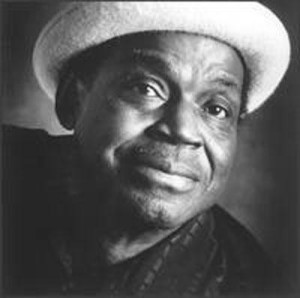
Willie Dixon
Born in 1915, Willie Dixon did more to shape Chicago Blues than nearly anyone else besides perhaps Muddy Waters. He was the ultimate all-around blues man, working as a bass player, compser, producer, arranger and bandleader..to name a few. He initially began a career as a boxer, even sparring with Joe Louis, but it only lasted four fights after an altercation with his manager ended his pro career.
In 1939 he formed The Five Breezes which played until 1941 when he was arrested for refusing to serve in the armed forces. During his term and after he got out, he continued writing, playing and producing music all the way until his death in 1992. He was and still is a major influence in his field.
Dixon was an indispensable “behind-the-scenesâ€�� musician in the postwar Chicago blues scene. He was a notable songwriter, and his compositions for Muddy Waters, Howlin’ Wolf, Little Walter, Koko Taylor, and Otis Rush became part of their signature repertoires. (more…)
Black History, Music
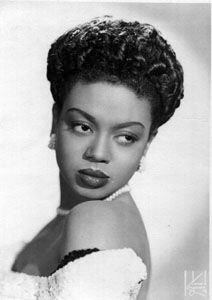
Hazel Scott
1920-1981 – Born in Port of Spain, Trinidad, Hazel Scott mastered the piano and other instruments at an early age. In 1924 her family moved to the United States, where Scott’s talents were rewarded with a six-year scholarship to the Juilliard School of Music.
Her critically acclaimed debut at New York’s Town Hall and her trumpet and piano performance in her mother’s All Woman Orchestra paved the way for her role as saxophonist with Louis Armstrong’s All Girl Band. In 1945, Scott married Adam Clayton Powell Jr., firebrand preacher, congressman, and civil rights revolutionary.
Acutely aware of the injustice facing African American entertainers, Scott refused to perform for segregated audiences in any of her venues. Her premier nightclub acts, noteworthy Broadway shows, and successful films led in 1950 to the first nationally syndicated musical variety television program hosted by an African American woman, The Hazel Scott Show.
Black History, Music, The Arts
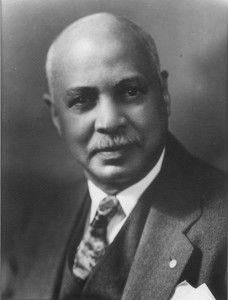
W.C. Handy
1873-1958 b. Florence, Ala. William Christopher Handy was largely self-taught, Handy began his career as a cornet player in a minstrel show in 1896, and later organized various small bands.
He was among the first to set down the blues, and with his Memphis Blues (1912), originally entitled Mr. Crump (1909), he rose to prominence. His songs, such as St. Louis Blues (1914) and Beale Street Blues (1917), are the classic examples of their type.
In 1918 he moved from Memphis to New York City and remained active as a writer and publisher of music, in spite of growing blindness, until shortly before his death. (more…)
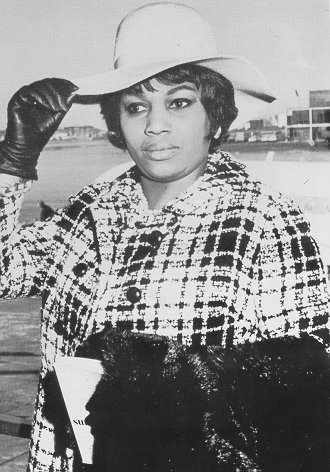
Black History, Music

Leontyne Price
Soprano Leontyne Price was born Mary Violet Leontine Price in Laurel, Mississippi, on February 10, 1927, the daughter of James and Katherine Price. Leontine was a very musical child and became a local success at an early age, singing at local weddings and funerals. After receiving local training, she sang in her first recital on December 17, 1943.
After studying at Wilberforve College (now Central State University) in Ohio, Leontine enrolled in the Juilliard School of Music in New York. She began studying with Florence Page Kimball and, shortly after changing the spelling of her name to “Leontyne”, she was accepted into the Juilliard Opera Workshop. Much of Leontyne’s musical education was supported by a wealthy family from Laurel, Alexander and Elizabeth Chisolm.
At Juilliard, she appeared in 1952 as Nella in Gianni Schicchi and and, later that year, as Mistress Ford in Falstaff. Also in 1952, she was invited by composer Virgil Thompson to appear as Saint Cecilia in a revival of his Four Saints in Three Acts in New York and Paris. (more…)
Black History, Music
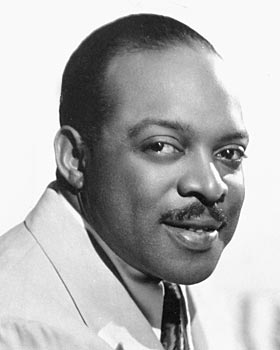
William James “Count” Basie
William James “Count” Basie (August 21, 1904 – April 26, 1984[1]) was an American jazz pianist, organist, bandleader, and composer. His mother taught him to play the piano and he started performing in his teens. Dropping out of school, he learned to operate lights for vaudeville and to improvise accompaniment for silent films at a local movie theater in his home town of Red Bank, New Jersey. By 16, he increasingly played jazz piano at parties, resorts and other venues. In 1924, he went to Harlem, where his performing career expanded; he toured with groups to the major jazz cities of Chicago, St. Louis and Kansas City. In 1929 he joined Bennie Moten’s band in Kansas City, and played with them until Moten’s death in 1935. (more…)
 “Lift Every Voice and Sing” — sometimes referred to as “The Negro National Hymn” or ” The Black National Anthem”— is a song written as a poem by James Weldon Johnson (1871 – 1938) in 1899 and set to music by his brother John Rosamond Johnson (1873 – 1954) in 1900.
“Lift Every Voice and Sing” — sometimes referred to as “The Negro National Hymn” or ” The Black National Anthem”— is a song written as a poem by James Weldon Johnson (1871 – 1938) in 1899 and set to music by his brother John Rosamond Johnson (1873 – 1954) in 1900.



